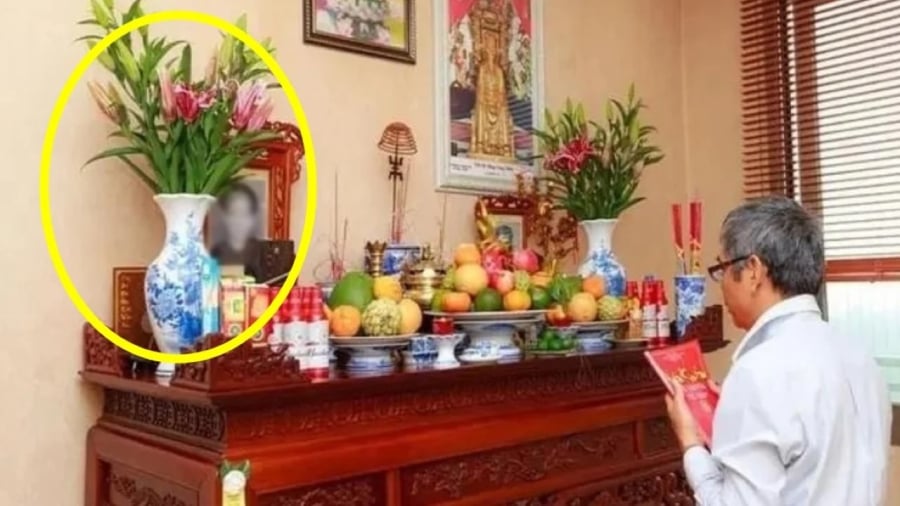Why You Shouldn’t Place Lilies on the Ancestral Altar
Why lilies are not recommended for ancestral altars?
When offering flowers as a tribute to ancestors, many families choose lilies, unaware of the “major taboo” in feng shui associated with this flower.
According to feng shui experts, lilies, despite their elegant colors, aesthetic appeal, and subtle fragrance, symbolize separation and parting.
Therefore, placing lilies on the ancestral altar is believed to impact the relationships among family members, leading to increased distance, arguments, and discord within the family.

Avoid placing lilies on the ancestral altar. (Illustrative image)
However, in modern times, the decision to offer lilies or not is left to the discretion of each family, based on their cultural beliefs, traditions, and perspectives.
In churches and temples, white lilies are commonly used as offerings to saints and the Buddha, as they symbolize beauty, virtue, pride, and noble, faithful love.
Additionally, in many Asian countries, lilies are considered a symbol of marital harmony and are often used to decorate wedding ceremonies, representing the purity and innocence of the bride.
In conclusion, whether one chooses to follow feng shui principles or not, the most important aspect is the sincerity and reverence shown by the family towards their ancestors. If one still wishes to display lilies on the ancestral altar, it is advisable to choose an appropriate vase and height for the flowers.
The ancestral altar is a sacred space that demands respect and solemnity. When placing a vase of flowers, consider the balance and proportion with other objects on the altar.
It is recommended to place the vase of flowers on the left side of the altar, ensuring that it is not too tall, large, or small, to avoid being obscured by other offerings or ceremonial items.
The information in this article is for reference only and should not be taken as absolute truth.
The Power of the Snake Plant: Inviting Fortune or a Path to Misfortune?
The Snake Plant, often referred to as the ‘money plant’, is a powerful symbol of prosperity and good fortune in Feng Shui. Its presence in a home or office is believed to attract wealth and success, but its placement is critical. When positioned correctly, it can bring abundance and positive energy to the occupants, but if placed in the wrong location, it may lead to financial losses and misfortune.





































